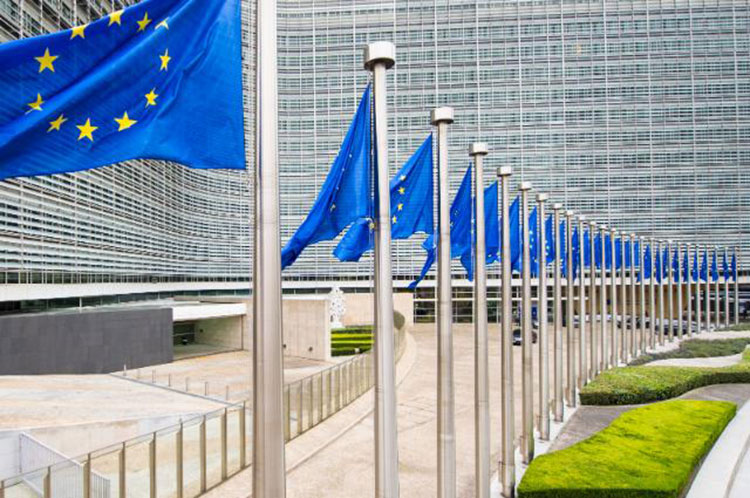Public administration reform (PAR) remains among the focal areas of EU’s assistance for the Western Balkans countries, namely Albania, Bosnia and Herzegovina, Kosovo* , the former Yugoslav Republic of Macedonia, Montenegro and Serbia (hereafter WB6). WB6 countries face common challenges in the field of PAR despite recent progress made in the context of the EU enlargement process.
According to the European Commission country Progress Reports and the EU/OECD SIGMA assessment reports, Public Administration Reform challenges in the Western Balkans include but are not limited to: enhancement of policy and legislative development and coordination capacities and processes including European Integration planning and implementation, streamlining public administration organisation and accountability lines, professionalization and de-politicisation of the civil service, human resource development and management, improving the quality, accessibility and delivery of public services to citizens and businesses and the public finance management system.
Regional cooperation remains a catalyst for the enlargement process and a key enabling factor for comprehensive reforms and the return to sustainable economic growth in the Western Balkans. The common PAR problems faced by the WB6 countries could also be more efficiently addressed through peer review and sharing of good practices.
In the context of the Berlin process and in the framework of the European Union’s Connectivity Agenda for the Western Balkans, the European Commission launched in 2016 a pilot action for a regional executive programme and exchange component for young civil servants from the Western Balkans, namely the EU Scheme for Young Professionals in the Western Balkans (YPS).
Thirty young civil servants (five from each WB6 beneficiary) benefited from an executive programme implemented in partnership with Science Po and an exchange programme implemented with host administrations in all six Western Balkans countries.
This pilot action delivered last year, has had a positive impact on facilitating and improving two cornerstones of the EU accession process in the Western Balkans: PAR and regional cooperation. Based on the encouraging results of the pilot project presented in the context of the Trieste Summit held in July 2017, the European Commission, following a positive opinion of the IPA Committee (Member States), decided to continue the EU Scheme for Young Professionals in the Western Balkans (YPS) for a further two years.
The present two-year Action is therefore a continuation of the pilot action. It draws on the pilot action’s overall and specific objectives as well as encouraging results.
Overall objective
The overall objective of this follow up Action is “to contribute to progress in the accession process and deepen regional cooperation in the Western Balkans”.
Specific objective(s)
The Action’s specific objectives are as follows:
- Specific objective 1: To build professional capacity and prepare the next generation of public administrators and policy makers in the six Western Balkan countries who will be in charge of the accession process and drive and lead future change in their societies, in particular those required under the Stabilisation and Association Agreement (SAA) implementation and accession negotiation process;
- Specific objective 2: To promote the regional cooperation element of the European Union integration process at the level of civil service by making cross-border connections between these leaders and agents of change and facilitating peer learning and the sharing of best practices.
We are looking for Civil Servants with between two and five years of working experience in Public Administration in one of the six countries of the Western Balkans. Civil servants eligible to apply will be those involved in policy formulation and strategic planning within the Prime Minister’s Office, Ministry of Finance, strategic units of the Ministry of Foreign Affairs and Ministry of European Integration/Governmental Directorates/Bodies of European Integration as well as civil servants from other line Ministries involved in European Integration process.
The Action has foreseen a four week-long tailor-made training programme split between two training institutions: Sciences Po in France (Dec 2017) and College of Europe in Belgium (Jan/Feb 2018). The short duration of the programmes will allow civil servants to limit their time away from work but the intensive and tailor-made nature would still suit the profiles of the participants and the needs of the administrations of the WB6 countries. Upon completion of the training programmes, civil servants will participate in a regional exchange component which will involve each of them spending two weeks
(March / April 2018) in the public administration of a neighbouring WB6/IPA II beneficiary country. This regional cooperation component of the Action will facilitate peer review and learning and the sharing of good practices and help participants to understand better the neighbouring “ other ” thus contributing also to reconciliation efforts in the region.
KEY DATES
APPLICATION PHASE
25 September – 10 October 2017
INTERVIEW PHASE
- Pristina: 23 and 24 October 2017
- Tirana: 25 and 26 October 2017
- Podgorica: 31 October and 1 November 2017
- Belgrade: 2 and 3 November 2017
- Sarajevo: 6 and 7 November 2017
- Skopje: 9 and 10 November 2017
TRAINING PHASE
3 -16 December 2017 – Sciences Po, France
28 January – 10 February 2018 – College of Europe, Belgium
OTHER EXCHANGES AND EVENTS IN 2018
March / April 2018 – two weeks exchange within the Western Balkans
May 2018 – Regional Conference and Lessons Learnt Event, Montenegro
*This designation is without prejudice to positions on status, and is in line with UNSCR 1244/1999 and the ICJ Opinion on the Kosovo declaration of independence.




